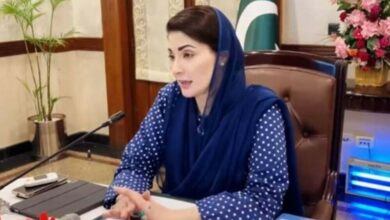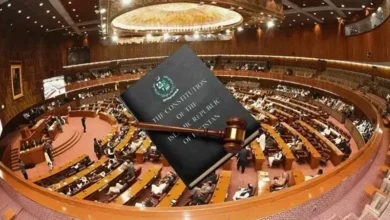What is Pakistan thinking and talking about? There is, of course, no way of drawing a credible picture or a map of what is on the minds of ordinary Pakistanis at this time. Though it would be hard to monitor, even by our high-tech intelligence agencies, there will be a unique manifestation of this question during the next few days in almost all our drawing and dining rooms.
That is how Eid ul Fitr is ritualistically celebrated every year. Families and relatives and friends get together on this occasion, many of them travelling to their hometowns to be with their dear ones and to repair relationships.
A number of traditions are associated with Eid, such as new clothes and the giving and receiving of cash gifts as Eidi. A lot of excitement is also generated by late-night shopping during the last days of Ramazan. And there is the romance of ‘chand raat’.
But I want to focus largely on the social impact of Eid. It fosters family and community connections. Having a meal together is supposed to be a measure of well-being and mental health. Only last week (‘Thriving on adversity’, March 23), I had celebrated Pakistan’s ranking in the World Happiness Report 2025.
Why this report should somewhat lessen our sorrows is that it is perhaps the only global survey in which we have done better than India and Bangladesh. It said that we are ‘happier’ than our socially and economically more advanced South Asian neighbours. As experts explain, happiness is not just about wealth and growth. It is about connections. Americans have become more miserable because such a large number of them dine alone.
Ah, but this finding that we are happier than other major countries in the region may not be reflected in the countless Eid conversations held at various levels during the long vacations. It is possible that family gossip and personal anecdotes would be the staple of most encounters during these sessions.
At the same time, any mention of the national state of affairs is sure to serve a smorgasbord of lament and gloom. It is my experience that all participants readily partake in this activity, even when they belong to opposite sides of the political divide. I have noted that this almost obligatory chorus of bereavement is generally not supplemented with any serious references to reason or facts.
So, one can imagine many Eid conversations lapsing into this state of dejection, if only in a non-serious manner. Otherwise, the Eid holidays do provide an opportunity for relatives and friends to share their thoughts on trivial matters while renewing their contacts and catching up with developments within the extended family.











